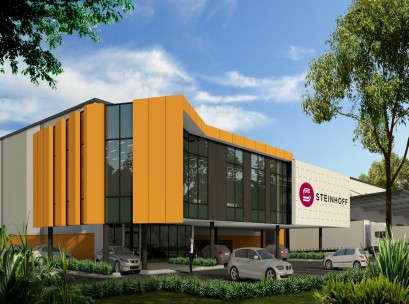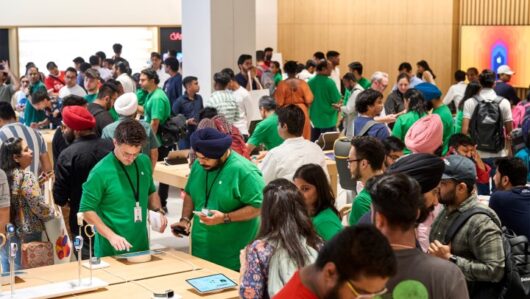 South African Steinhoff International has been defying gravity for several years, seduced by low interest rates to debt fund an aggressive expansion globally.
South African Steinhoff International has been defying gravity for several years, seduced by low interest rates to debt fund an aggressive expansion globally.
The company claims to have more than 12,000 stores across more than 40 retail brands in 30 countries, as well as manufacturing plants that supply some of its retail outlets.
While it’s listed on the Johannesburg Stock Exchange and the company’s management and operational headquarters remains in South Africa, Steinhoff International sought to attract more investors and expand its funding options from banks by moving its primary listing to Germany’s Frankfurt bourse.
It was a fateful decision as the German corporate laws have played a key role in bringing Steinhoff International to the brink of collapse just prior to Christmas last year.
Management of the company’s Australian retail chains claim local business is independent, profitable and financially strong with positive cashflows.
However, all of Steinhoff International’s Australian retail portfolio is in jeopardy as the company’s intricate financial arrangements are investigated over possible fraud, the lodging of inaccurate financial records and a black hole of up to $A9.2 billion.
German corporate investigators and the retailer’s bankers are probing allegations that the company’s accounts were manipulated to hide losses and boost its valuations.
The company itself has hired PricewaterhouseCoopers for an internal investigation after two CEOS and the chairman, who was the largest individual shareholder, have resigned.
The ANZ Bank and the National Bank have already appointed a financial firm specialising in insolvencies to examine the Australian businesses because local debt was subject to guarantees by offshore Steinhoff International entities.
The debt and other liabilities of Steinhoff International have been estimated as high as $A61 billion, with the acknowledged debt for the over-arching corporate entity of more than $A16 billion and lease commitments for its stores of around $A15 million.
Steinhoff International’s share price plummeted by 80 per cent over 6-7 December, representing a loss of around $A15 billion in capitalisation after the company announced its auditors had refused to sign off on its 2017 accounts.
The company conceded that the accounts for FY16 might also need to be restated and that financial irregularities might even go back much further.
Where the trouble began
While the speed and dimension of the collapse, which now has Steinhoff International’s market capitalisation at less than A$3 billion, there were some warning signs in the leveraging of debt, an unhealthy focus on tax breaks and acquisitions that seemed to be more opportunistic than strategic.
Indeed, the rapid growth of the company via debt funded acquisitions of retail chains struggling in sluggish markets was a repeat of a tried and true method of going broke, especially if your acquisitions are effectively gambling on the end of the low growth cycle of the past five years and a return to more buoyant retail trading conditions.
Steinhoff International’s opportunistic acquisition strategy was evident in its interest in Woolworths’ underperforming Big W discount department store chain and The Good Guys, which that was bought by JB Hi-Fi and Fantastic Furniture, which was under pressure from shareholders to be more candid about its finances.
Further back, Steinhoff International acquired Harris Scarfe and Best & Less through a 2015 buyout of fellow South African retail group, Pepkor.
The Australian businesses for Steinhoff International have been led by several highly regarded local retail executives including Michael Ford, the former Good Guys CEO who was appointed as CEO the South African retailer’s Asia Pacific business in late 2017.
Ford insists the Australian business is in good shape with experienced leadership and strategies for sustainable growth and discreet banking facilities that are not linked to any international financing.
Notwithstanding Ford’s confidence, it is doubtful that local trading results will provide sufficient comfort for the Australian lenders to offset the virtually worthless guarantees for loans from Steinhoff International’s overseas entities.
It is also important to note that Steinhoff Asia Pacific Holdings is a wholly-owned subsidiary of global parent company Steinhoff International Holdings N.V. and is therefore not immune to the financial or legal fallout from the December revelations and dramatic collapse in the enterprise value on the Frankfurt stock exchange.
Locally, a key issue for all retailers going forward will be a new accounting requirement in Australia to include lease liabilities on balance sheets and that will be one of the issues that will be examined closely by the insolvency firm appointed by the ANZ and national banks.
The lease liabilities are currently also a focus of Steinhoff International’s European and American financiers as they consider pleas by the retailer for patience from creditors while the financial irregularities are probed.
Up for sale
There are rumours circulating that some of Steinhoff International’s local retail chains are already being offered for sale to private equity firms because such a transaction would be the quickest possible divestment opportunity.
The rumours are hardly surprising with Steinhoff International advising global creditors it is working to divest assets worth around $A1.5billion to reduce debt and shore up its balance sheet.
Steinhoff International’s Asia Pacific division has eight brands with around 275 stores and 3,500 employees as well as a logistics business.
However, private equity buyers would be unlikely to be interested in Harris Scarfe and Best & Less, which have struggled for profitability and are both being repositioned.
The Debenhams deal
Harris Scarfe has a deal with British department store Debenhams, involving selected product ranges within its own brands stores, as well as a rollout of 10 standalone Debenhams outlets around Australia, the first of which opened in the Melbourne central business district.
The Debenham’s deal could well fall over, with the British retailer struggling and closing stores with its share price plummeting to the 30 pence depths that last prevailed in the 2008 global financial crisis.
It is doubtful that Steinhoff International’s Asia Pacific division has the ability to raise sufficient capital to fund the rollout of further Debenham stores in Australia, potentially leading to an exit from or substantial revision of the current agreement between the two retailers.
Since the Melbourne store launch in October last year, there have been no further stores announced for Debenhams in Australia, despite approaches from the major retail landlords and the business is not currently recruiting more staff.
A fantastic offer
Other businesses within Steinhoff’s Asia Pacific portfolio are Fantastic Furniture, Freedom Furniture, Snooze, Plush, Bay Leather Republic and Original Mattress Factory.
The most valuable brand in the furniture portfolio is Fantastic Furniture, which was acquired by Steinhoff International for $360 million in late 2016.
Fantastic Furniture could be of interest to Quadrant Private Equity which owns Amart.
Quadrant is keen to pursue a stock exchange listing for Super Amart, which it has owned since 2012, but has been unable to realise its objective to raise the chain’s revenue to around $1 billion.
An successful and profitable exit from the Super Amart investment may depend on Quadrant Private Equity securing another furniture retailer to build an operational scale.
A distress sale by Steinhoff International of Fantastic Furniture and its other furniture brands would be likely to have appeal to Quadrant, albeit the timeframe for a public listing would need to be extended to allow operational integration and the realisation of some business synergy benefits.
If Steinhoff Asia Pacific had its choice, divestment of Harris Scarfe and Best & Less would no doubt be preferred because they are struggling for profit, need more capital investment and trade in a fiercely competitive category.
However, there would be limited buyer interest in those apparel and general merchandise chains, unless Steinhoff International could attract a Chinese investor or tantalise TK Maxx, the American retailer keen to expand its footprint in Australia.





